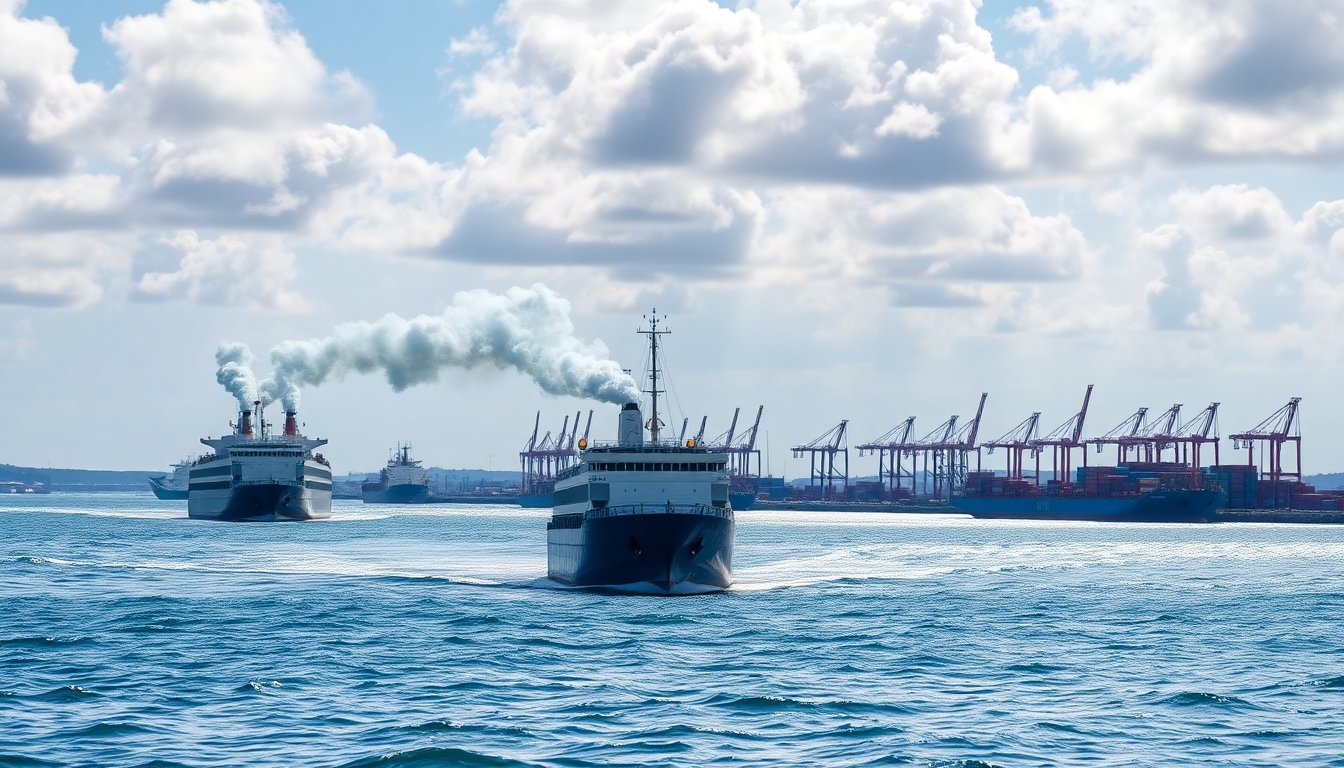Table of Contents
The International Maritime Organization (IMO) has decided to halt discussions on a significant initiative to tax pollution from shipping. This move is seen as a major setback for climate action. The postponement follows a concerted push from the United States, with support from countries such as Saudi Arabia and Russia. Consequently, the future of international regulations regarding greenhouse gas emissions remains uncertain. Given that shipping contributes approximately 3 percent of global emissions, the ramifications of this delay are substantial.
US diplomacy shapes the outcome
During a recent meeting in London, the administration of President Donald Trump applied significant pressure on other countries to retract their support for a proposed tax on shipping emissions. This initiative aimed to facilitate a shift towards cleaner fuels and to achieve net-zero carbon emissions in the maritime sector by 2050. However, US objections, presented as a defense against what was termed a ‘climate scam,’ played a crucial role in postponing discussions for a year.
White House reaction
The White House welcomed the outcome, framing it as a victory for the American public. White House spokesperson Taylor Rogers stated, “President Trump has saved America from what he called an outrageous climate scam.” This perspective reflects a growing skepticism towards international climate initiatives, which the current administration views as detrimental to the US economy.
European Union’s setback in climate diplomacy
The European Union, a long-time advocate for robust climate policies, encountered a notable setback in recent diplomatic efforts. Teresa Ribera, Executive Vice President of the European Commission, labeled the decision to postpone negotiations as “a huge shame.” This development comes ahead of the COP30 climate talks scheduled to take place in Brazil. The EU’s inability to secure adequate support for its proposal not only underscores internal divisions but also emphasizes the difficulties in aligning member states around a unified climate agenda.
Concerns over the shipping industry’s future
The initiative proposed by the International Maritime Organization (IMO) aims to gradually impose financial obligations on polluting vessels. The goal is to fund the transition to cleaner energy sources and support developing nations. However, the proposal has faced backlash from several countries, particularly those with economies heavily reliant on fossil fuel industries. A representative from Greece expressed concerns that the framework depends on technologies not yet available at a large scale, potentially imposing unnecessary financial burdens on shipping companies.
Global implications of the delay
The postponement of proposed climate actions has significant global repercussions. It not only stalls progress but also allows opposing nations to strengthen their resistance against such regulations. The lack of a cohesive approach to climate action from the EU raises concerns among advocates who call for immediate measures to address emissions, particularly in the shipping sector, which is rapidly expanding. This moment is seen as a critical failure in leadership, especially as countries like China, which initially backed the proposal, have changed their position due to external pressures and economic factors.
Future of international climate policy
The implications of the current hiatus in international climate negotiations are significant. Experts warn that a failure of the International Maritime Organization (IMO) initiative could result in a fragmented regulatory environment. This would lead to individual countries adopting their own regulations, creating confusion and increasing costs for the shipping industry. Emma Fenton from Opportunity Green highlighted the necessity for a cohesive and bold climate policy, particularly one that prioritizes vulnerable nations impacted by climate change.
As the global landscape evolves, the European Union remains steadfast in its commitment to a science-based framework targeting net-zero emissions by 2050. A spokesperson for the European Commission reaffirmed this commitment and expressed a willingness to participate in future discussions under IMO leadership when circumstances permit.
Shipping industry expresses disappointment over climate tax delay
The shipping industry, represented by organizations such as the International Chamber of Shipping, has expressed disappointment regarding the recent decision to delay the climate tax proposal. The industry emphasizes the necessity for clarity to facilitate essential investments in decarbonization efforts. Thomas A. Kazakos, the chamber’s secretary-general, stressed the importance of collaboration with the International Maritime Organization (IMO) to develop effective global regulations.
This postponement not only highlights the current geopolitical climate but also emphasizes the complexities involved in achieving global cooperation on environmental issues. As nations prioritize their agendas, the future of international shipping emissions regulations remains uncertain.


